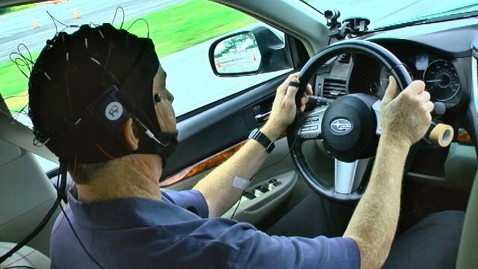Hands-Free Texting Devices Pose Great Risk to Drivers
Voice-activated in-car technologies to send text messages and emails while driving may not be the safer option compared with hand-held cellphones, according to a new study conducted by the AAA.
Cars are now coming with new voice-activated gadgets designed to keep drivers' focus on the road and their hands on the steering wheel.
Turns out, though, that the speech-to-text system caused more distractions than anything else the researchers tested, according to the study that was released today.
Researchers at the University of Utah who conducted the study with the AAA measured drivers' brainwaves, eye movement, driving performance, along with other indicators. Drivers were fitted with special skull caps to record their brain activity.
"Your brain is so overloaded with these talk-to-text tasks or talking on a cellphone that you have very little residual capability to attend to the roadway," said Joel Cooper of the University of Utah.

ABC News
AAA wants restrictions on the use of the voice-activated technology.
"This speech-to-text technology should only be able to be used or limited to use to drivers when the vehicle is stopped," AAA spokeswoman Yolanda Cade said.
The Alliance of Automobile Manufacturers was skeptical of the study's findings.
"We are extremely concerned that it could send a misleading message, since it suggests that hand-held and hands-free devices are equally risky," the association said in a statement to The Associated Press.